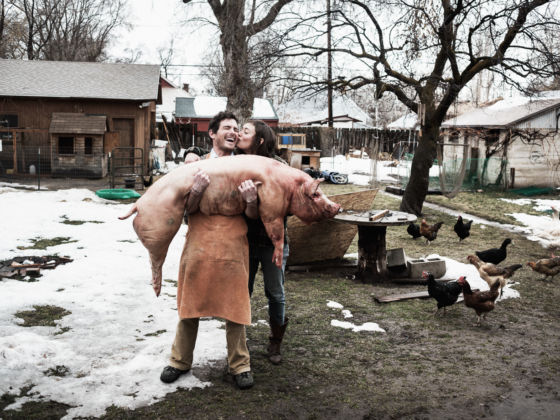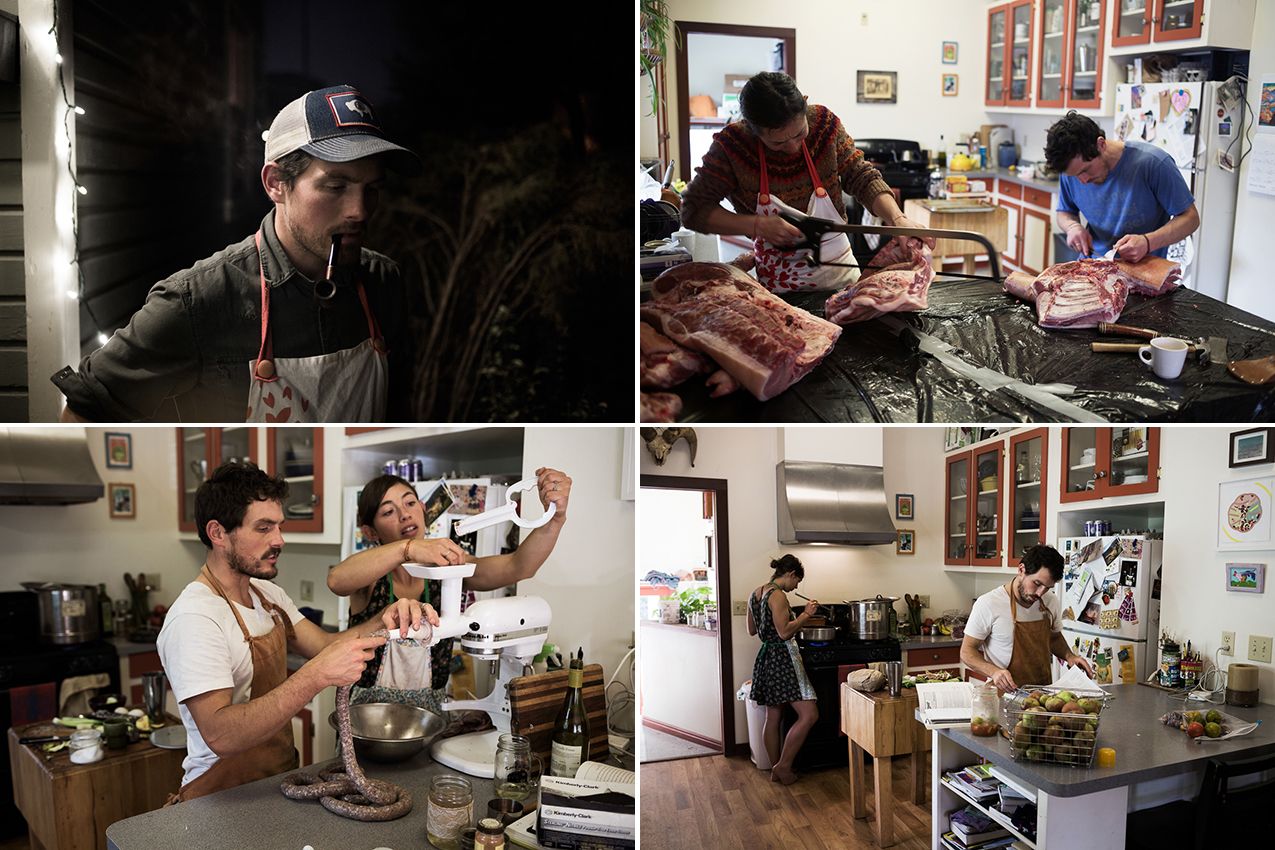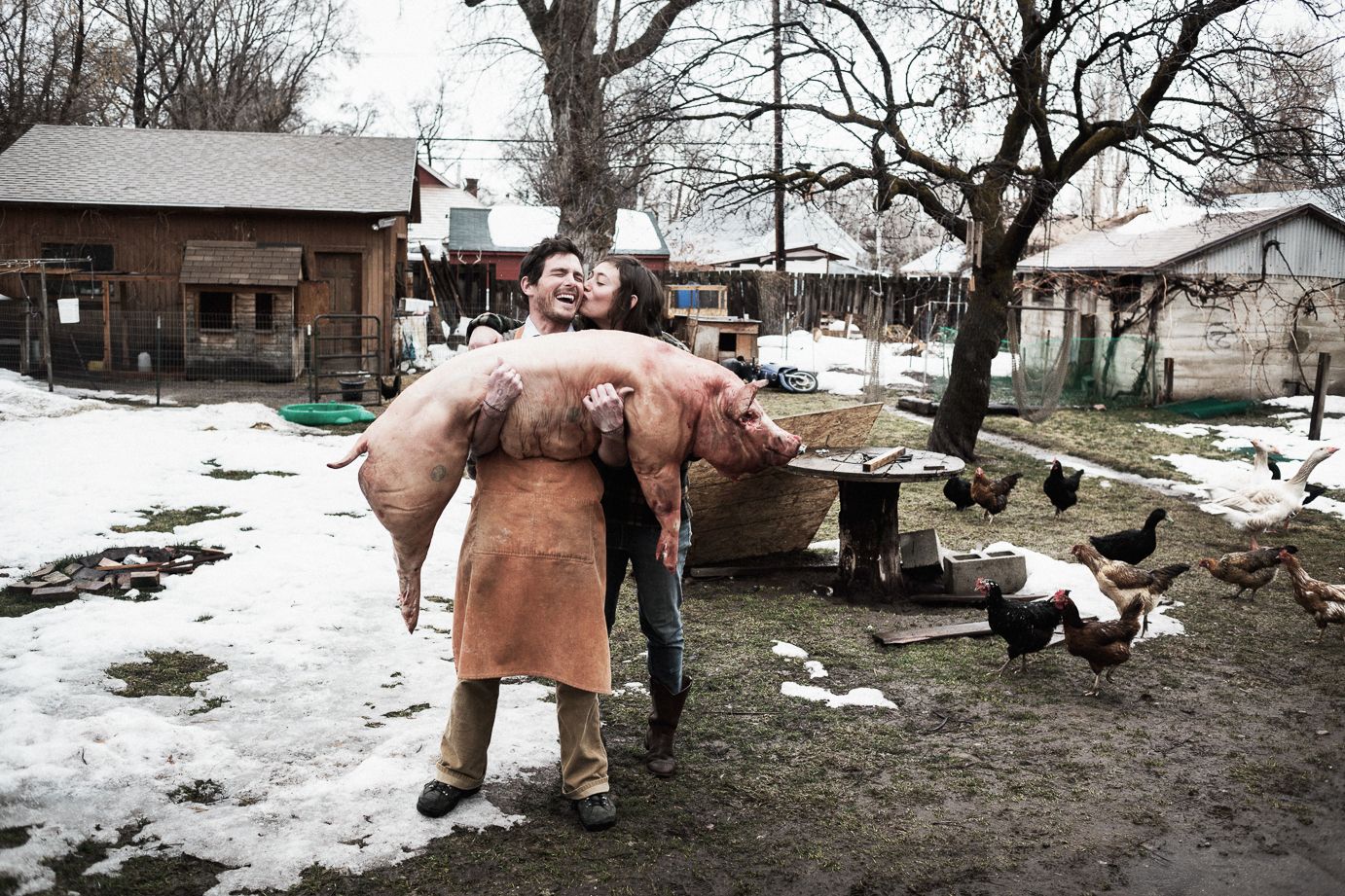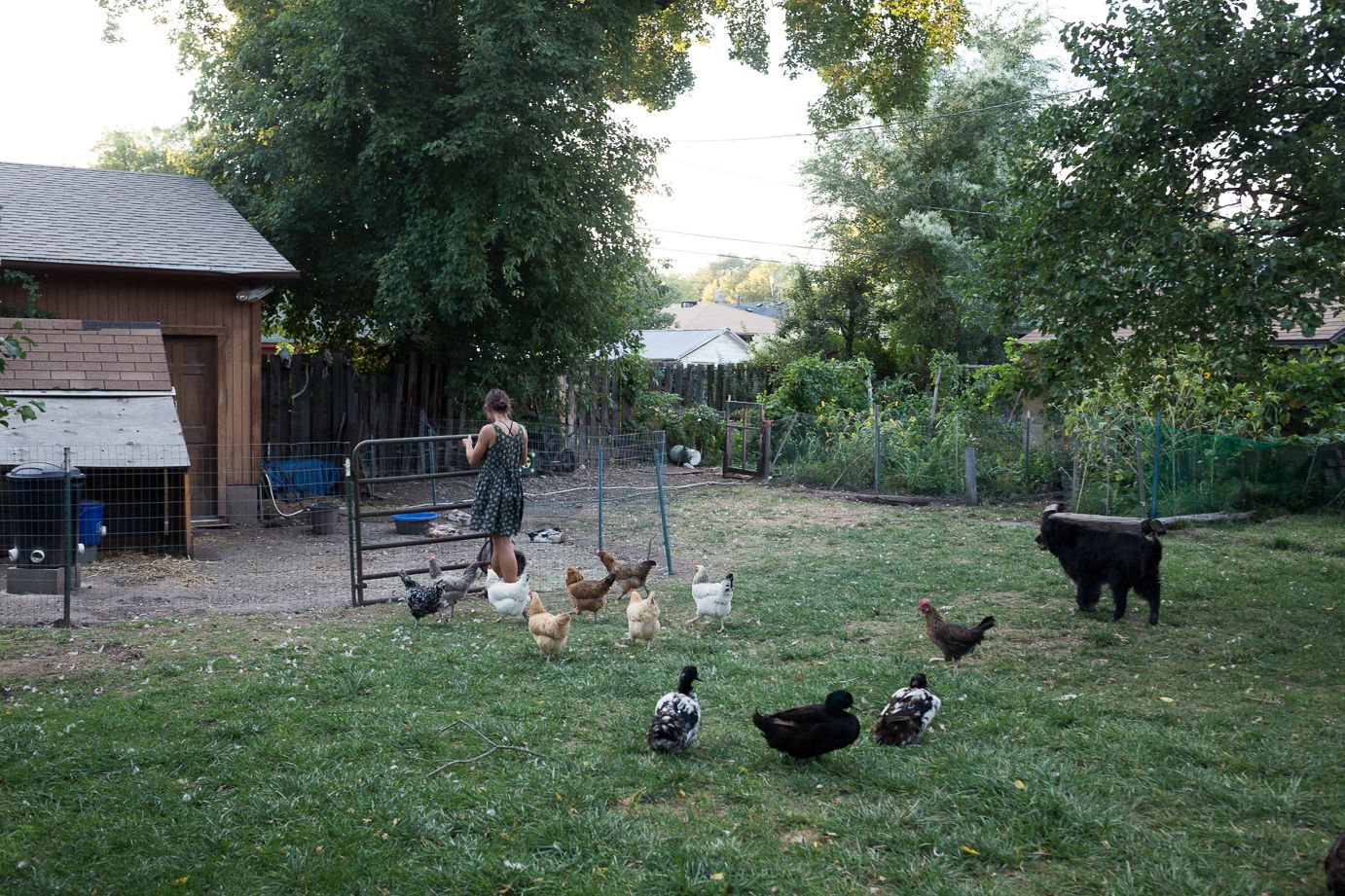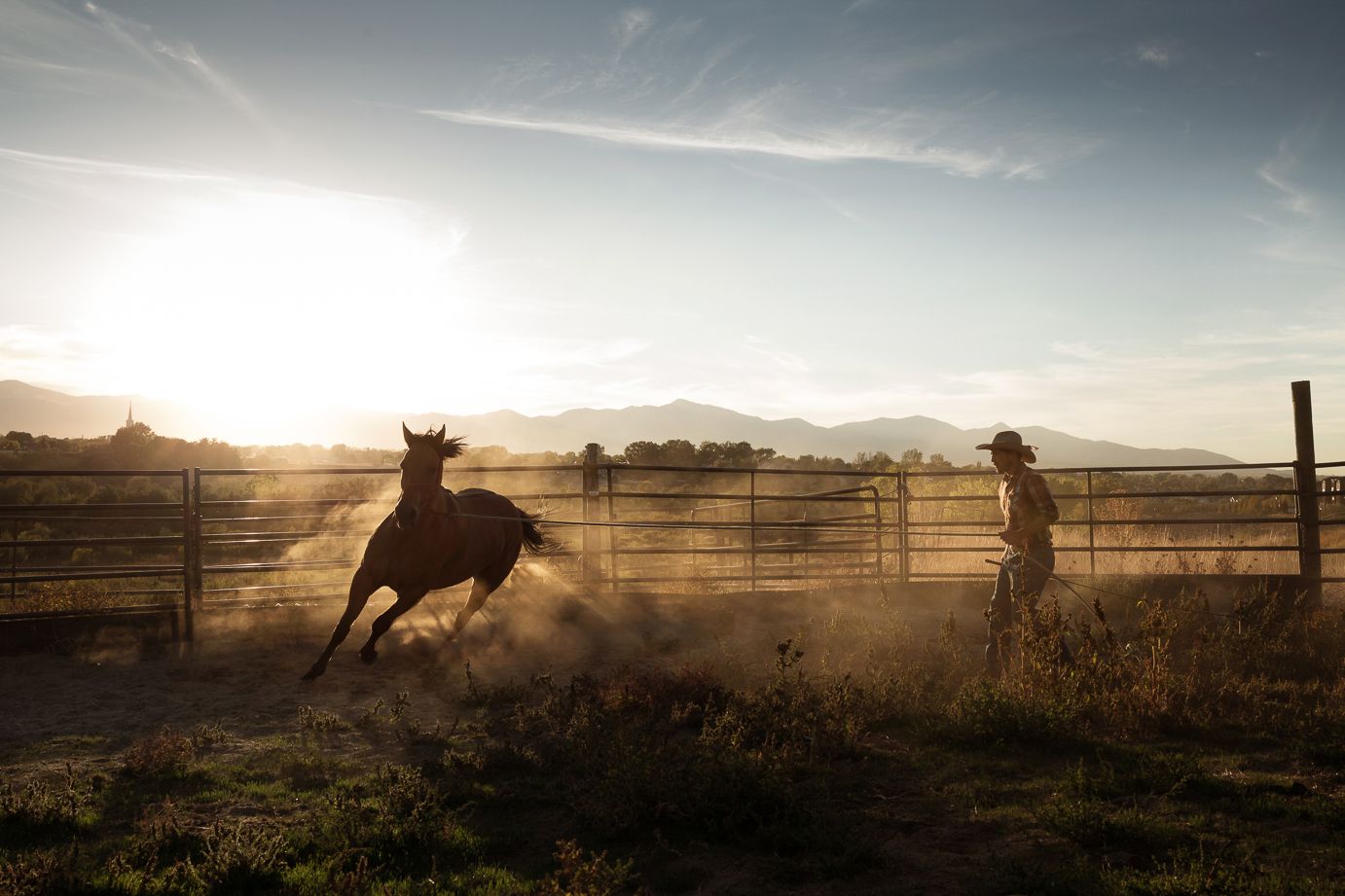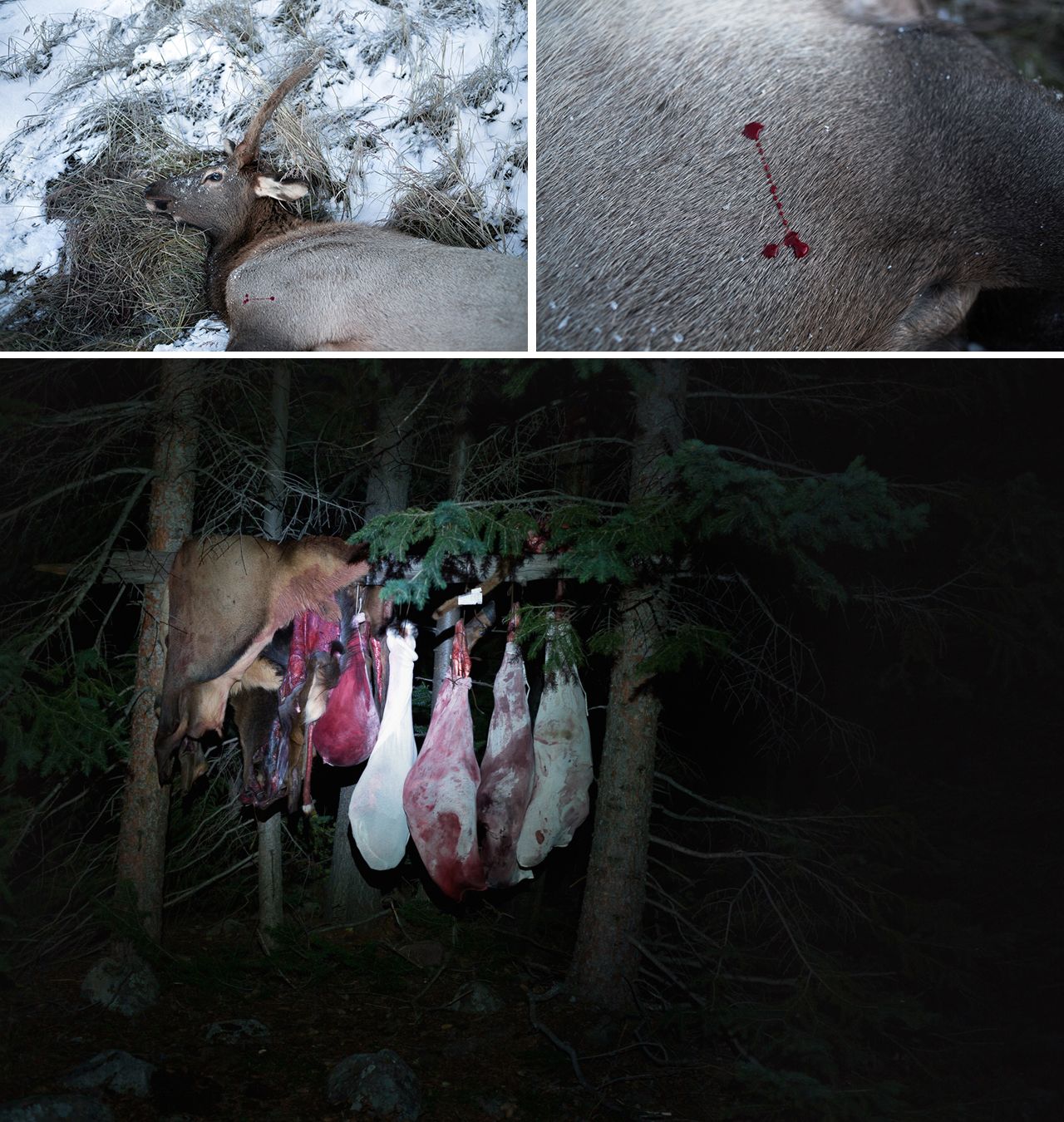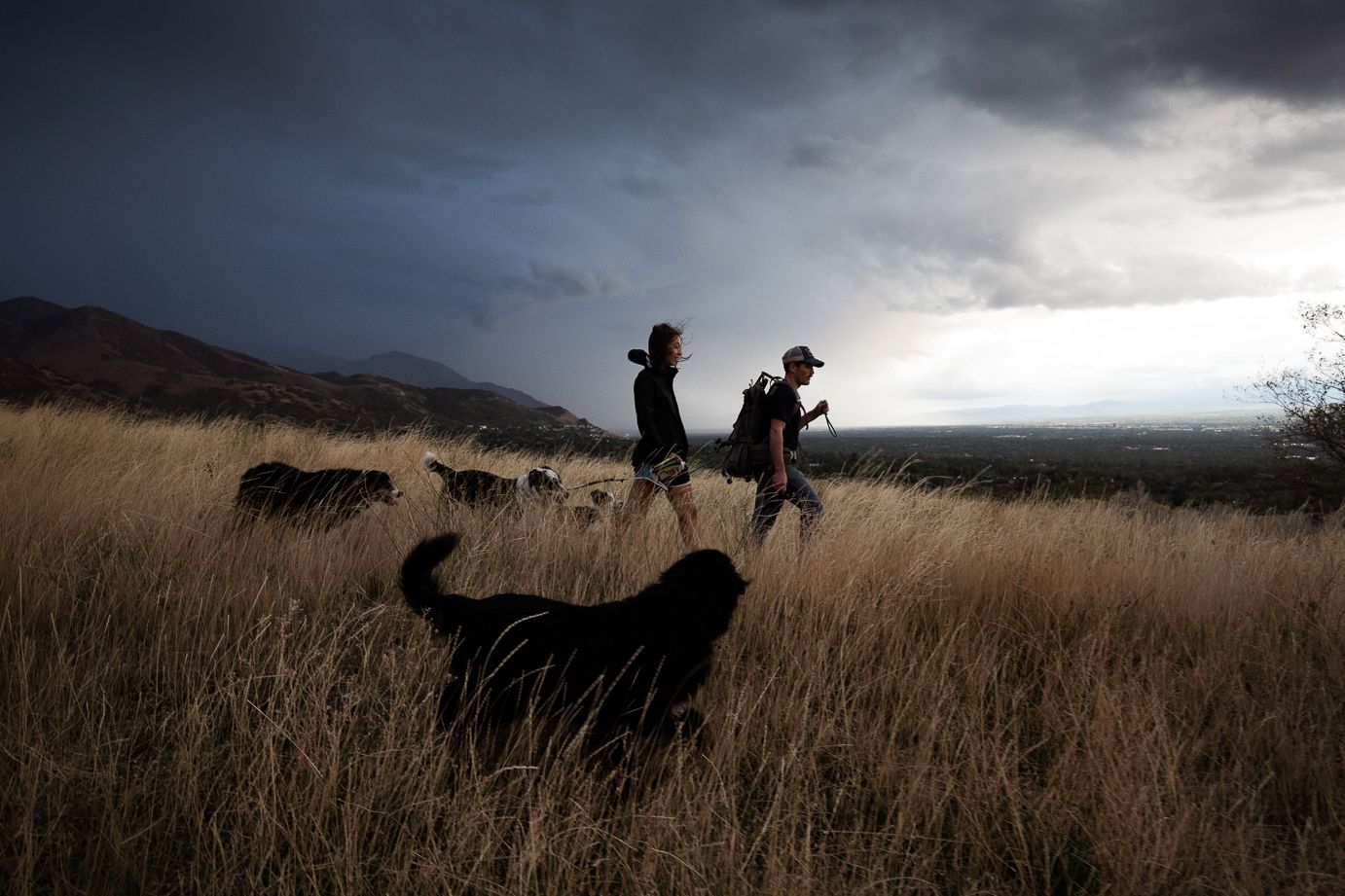Back to the land
While the American food industry works hard to turn meat into an abundant and cheap product, Ben cuts out the middle man and works hard to put some truly “honest food” on his table.
Ben and his wife Katherine are Americans who want to know and control where their food comes from.
They live in Salt Lake City, and have organized their house and backyard in order to produce most of their own food. They raise chickens, ducks, and geese for meat and eggs; they grow, harvest, and preserve an extensive array of fruits and vegetables; and they brew and ferment beer, wine, and cider in their basement.
Each year, they buy a half-hog from a local organic farm and butcher it at home. They spend a whole weekend butchering it in their kitchen and will use every last part of the meat and fat.
By allowing the use of vaccines and growth hormones in the cattle industry, the U.S. Food and Drug Administration has turned meat into an abundant and cheap product. Alongside numerous changes to the modes of production the American food industry has undergone during the 20th century, local initiatives have begun to emerge across the country.
Their goal: to shortcut the classic industry built around mass-consumerism and re-discover “honest food.”
A few years ago, Ben decided to go further in self-sufficiency by hunting his own meat. Each fall, he leaves Salt Lake City and drives into the mountains of northeastern Utah to hunt elk and game birds.
Elk hunting success rates in Utah average around 15 percent. With a horse in tow, Ben hikes up into the 10,000-foot high mountains and camps out in the wilderness where he can spend up to a week tracking and hunting elk.
It has now been more than two years since Ben and Katherine bought any of their meat from a classic supermarket.
Ben and Katherine don’t plan on staying in the city for their whole lives. Each time they head out into the countryside, they look around, hoping to find the perfect spot to build their homestead.
This article originally appeared on Maptia and is republished here with permission. You can follow the author on Facebook, Instagram, Twitter, or visit his website.
